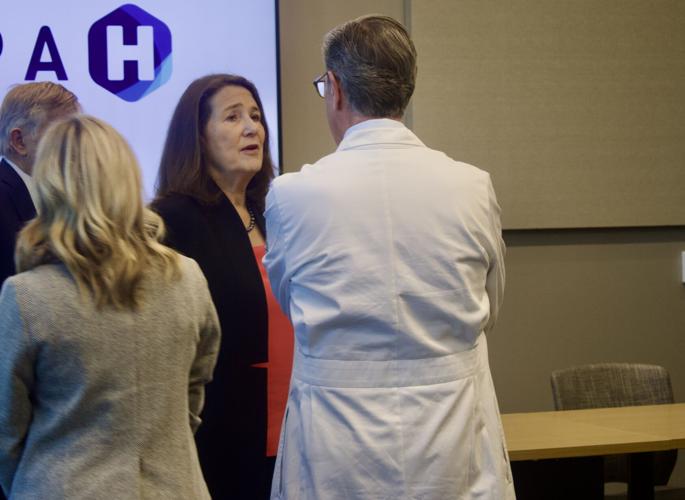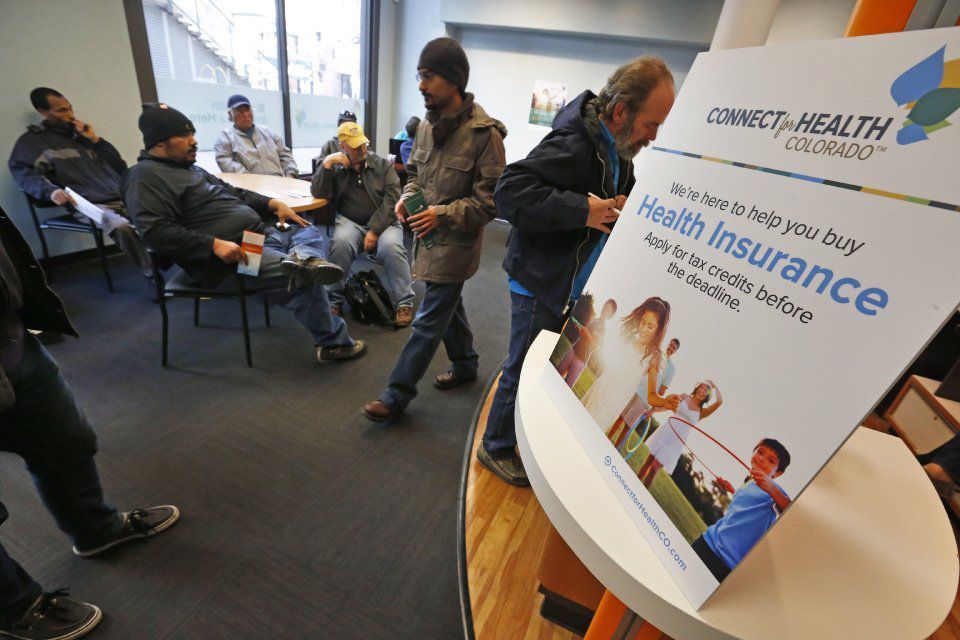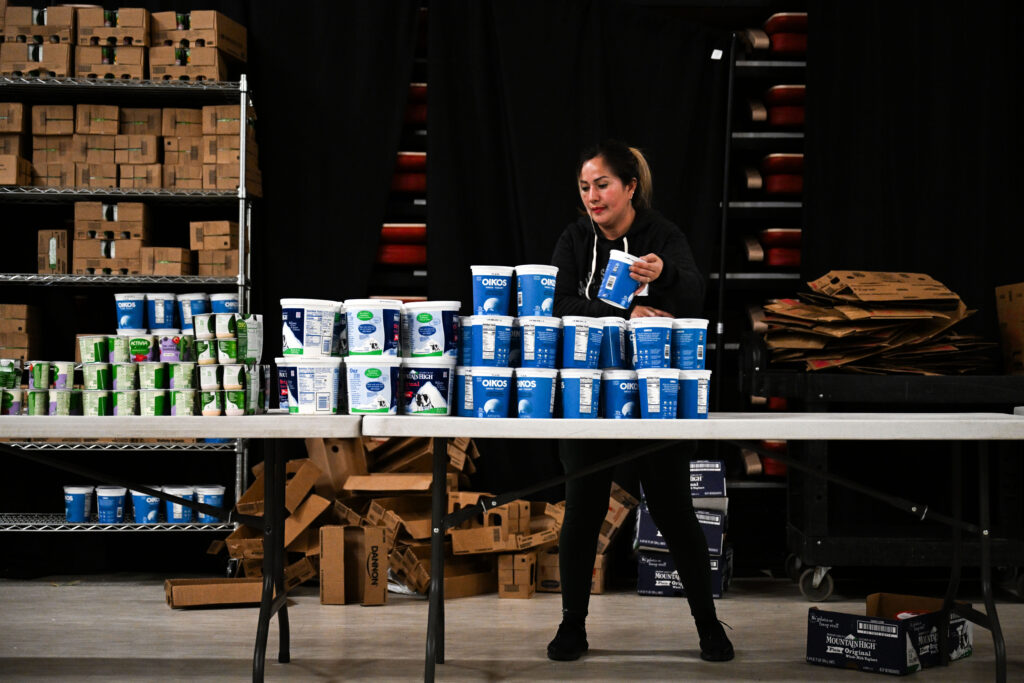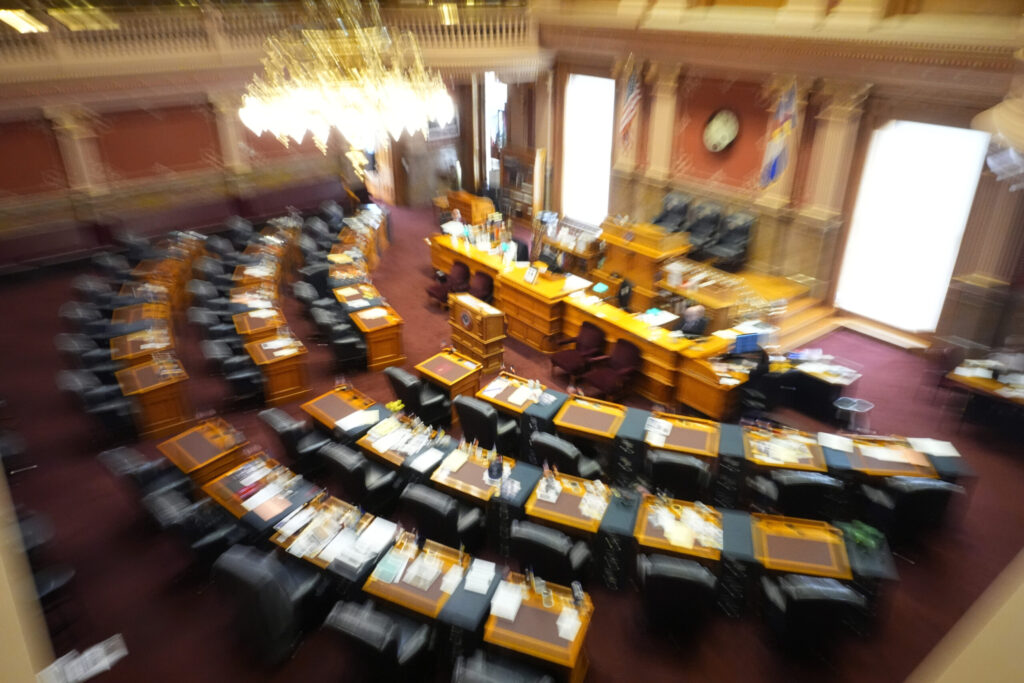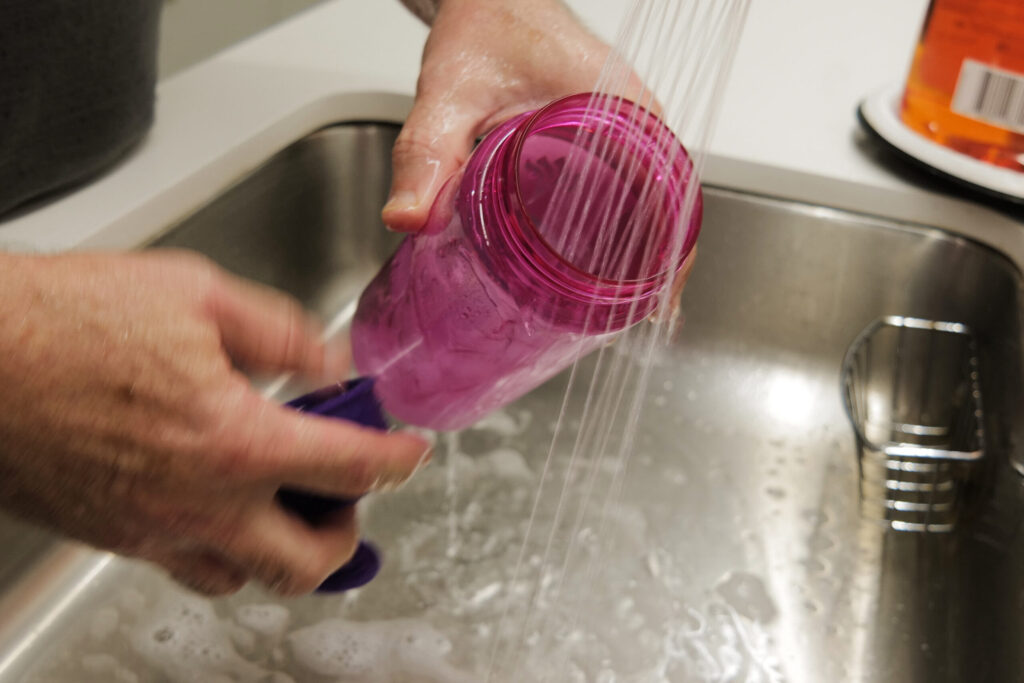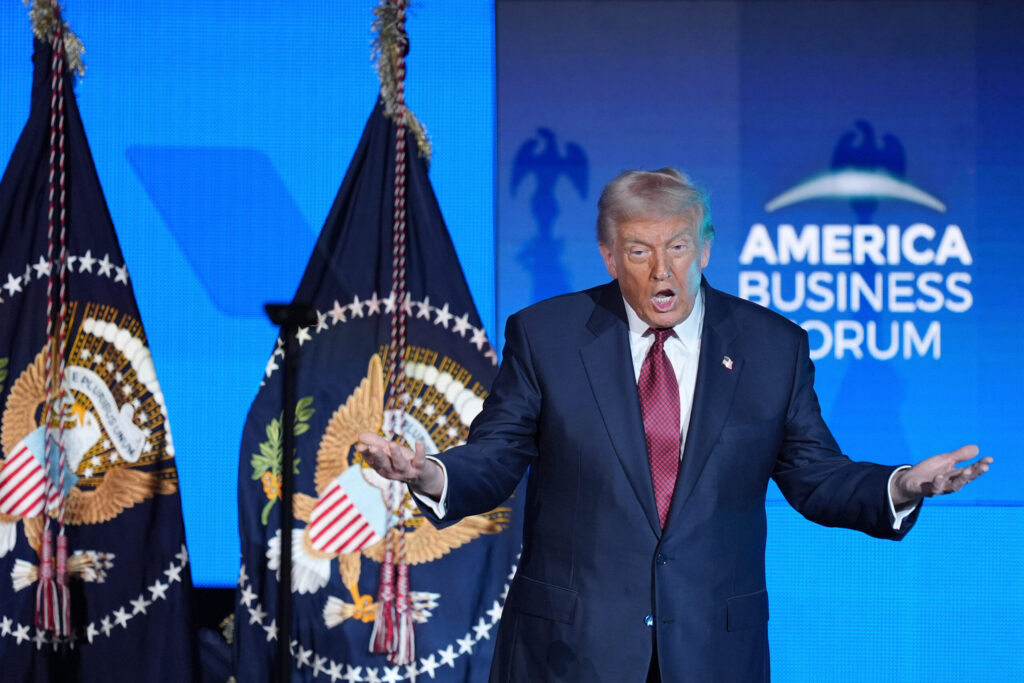Will human eye transplants make the blind see? CU Anschutz Medical is exploring the possibility
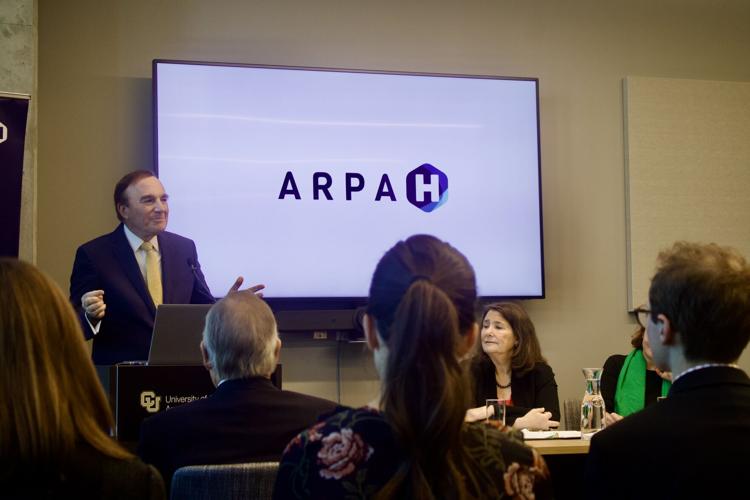
Dr. Calvin Roberts of ARPA-H speaks on his vision of what an eye transplant can look like during the announcement of a $46 million contract award towards University of Colorado Anschutz Medical Campus to research vision restoration for blind people. The announcement took place at the CU Anschutz Medical Campus' Health Sciences building in Aurora, Colo., on Monday, Dec. 2.
Noah Festenstein/Denver Gazette
If transplanting a human eye to restore vision in blind people is a possibility, it could very well come from one of Colorado’s largest medical campuses.
A federal agency has tasked the University of Colorado Anschutz Medical Campus in Aurora to pursue vision restoration research.
On Monday, the Advanced Research Projects Agency for Health (ARPA-H) announced it’s awarding $46.4 million in a five-year contract to help CU researchers find a cure for total blindness.
ARPA-H, a federal agency, researches high-potential, high-impact biomedical and health research that requires extensive and more-comprehensive research.
ARPA-H Program Manager Dr. Calvin Roberts, an experienced eye surgeon, said he first envisioned a partnership to provide research opportunities in what could be a revolutionary transplant procedure.
“Our eyes are nothing more than the entry extension of your brain,” he said. “But what you would need to be able to do to transplant an eye would be what you need to be able to sever brain tissue, to reattach brain tissues, and we just don’t know how to do that.
“But then if you actually could be successful, you could change the way health care is practiced.”
The idea is to transplant a deceased person’s eyes to a living person, like a heart transplant — but much different, according to Roberts.
Less than two years ago, Roberts said he met ARPA-H Director Renee Wegrzyn and the two agreed to pursue the challenging task.
“Fully restoring sight is not yet a possibility, even though for more than 60 years we’ve been able to do human heart transplants,” Wegrzyn said, adding research team partners under ARPA-H will address barriers across the nation through other recipients of the program.
Since ARPA-H started under the Biden Administration two years ago, the agency has distributed more than $2 billion across more than 20 “high impact” medical programs nationwide, according to Wegrzyn.
“If we are successful, not only what we’ll see is a transformation of an entire field, but also a de-risking of a technology so that there can be follow on investment, there can be commercialization, and we really try to close that valley of death that often is the place where so many biomedical innovations really, really do move very quickly,” Wegrzyn said.
University of Colorado School of Medicine professors Kia Washington and Christene Huang will lead the project among CU researchers.
“Currently, there has never been a successful whole human eye transplant for the restoration of vision,” Washington said in a statement. “We believe the great advancements over the last two decades in technology, transplantation surgery and regenerative medicine now make restoration of vision possible.”
Washington added the hardest part of an eye transplant surgery is reconnecting the optic nerve and monitoring aftercare to make sure the brain is ready ”to receive the correct signals and is accepting the new eye.”
Huang, the other project leader, said CU intends to “make it easier for the body to accept the new eye without rejecting it.
“To do that,” Huang added, “we will create practical methods to manage inflammation and prevent transplant rejection.”
Several other collegiate partners under ARPA-H assistance will collaborate with CU researchers in different ways.
For instance, the University of Wisconsin and Indiana University will work to develop bioengineered “nerve bridges” to connect the new eye. Meanwhile, John Hopkins University and University of Southern California will research other complications into eye transplants.
“This is what science is all about,” University of Colorado President Todd Saliman said in a brief message at a news conference on Monday.
U.S. Rep. Rep. Diana DeGette, who played a role in securing project dollars for CU’s medical campus, said she’s excited for the cutting-edge research.
“When we see projects like this, this is what excites us,” the congresswoman said. “This $46.4 million award to study human eye transplantation is just a perfect example of what ARPA-H was designed to do, which is to fund cutting-edge research that has the potential to change lives in ways that industry alone and traditional government funded research alone cannot achieve.”
The congresswoman added: “It’s the kind of bold thinking that’s going to unlock certain treatments, not just blindness.”






